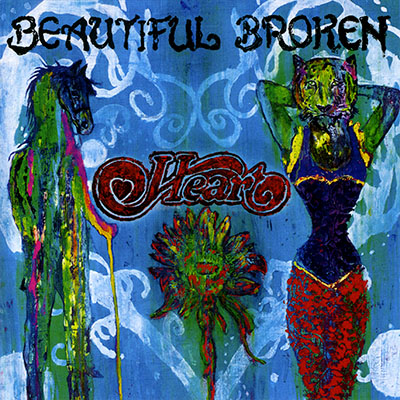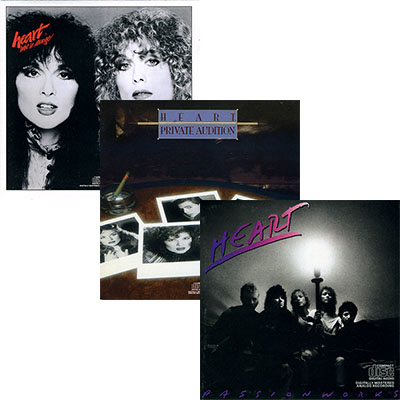













By now the Wilson sisters have been in the business a very long time, some fifty years as of this writing, and they surely know what well recorded, mixed, and mastered music sounds like. I'd like to say it's unimaginable that anything sounding as bad as Beautiful Broken would be let through for such seasoned musicians, but I of course know better. In my opinion, the last solid sounding Heart album was 1995's The Road Home, with 2004's follow up Jupiters Darling falling victim to all the usual trappings of the Loudness Wars in the way of dull sounding drums and a crushed down, muddy sounding mix, and everything after that (Red Velvet Car, Fanatic, and Beautiful Broken, the album under review here) being essentially garbage production-wise. This is incredibly disappointing given the always amazing songsmithing of the Wilson sisters still being front and center and fully on display. Just imagine a song like "Soul of the Sea" (from 1975 debut album Dreamboat Annie) being given the treatment seen and heard here... it's enough to make an audiophile cry.
On a final, unrelated note, Heart arguably ceased to be a "real" rock band after the 1998 departure of Howard Leese, the longest serving member other than the Wilson sisters themselves, and the last of these to have actually played on the debut album. This came nineteen years after original guitarist and founding member Roger Fisher had left, with the albums after Dog and Butterfly seeing different combinations of musicians come and go until, by 2003's Alive in Seattle, it was essentially the Wilson sisters and whatever backing musicians were on the payroll at the time. This isn't uncommon when looking at groups with this kind of longevity; another of my favorite bands, Blondie, has essentially traveled the same road, with every album after 2003's The Curse of Blondie effectively being Deborah Harry-Chris Stein duo projects. Plenty of other bands have over the years have been gradually whittled down to just the original singer and a hired backing band, many of whom play various festivals as part of "legacy act" music packages.